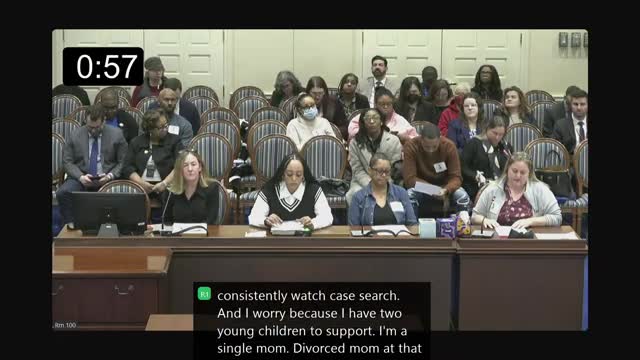Advocates press lawmakers to repeal HIV-specific crime, name bill for longtime activist Carlton R. Smith
Get AI-powered insights, summaries, and transcripts
Subscribe
Summary
Supporters urged repeal of Maryland—s HIV-specific criminal statute (HB 39), arguing it is outdated, deters testing and disproportionately harms communities of color and LGBTQ people. Advocates framed the bill as public-health and equity reform and asked the committee to honor long-time activist Carlton R. Smith by naming the measure after him.
House Bill 39 would repeal Maryland—s law that criminalizes transfer of HIV (currently codified at section 18-601.1 of the Health Article) and thereby remove an HIV-specific criminal prohibition that witnesses said is rooted in stigma and 1980s-era misinformation.
Advocates who spoke — including members of the Maryland Coalition to Decriminalize HIV, Free State Justice, the Maryland Commission on LGBTQI+ Affairs and multiple community leaders — said the law was enacted in 1989 when medical science and public understanding were very different. They argued the statute discourages testing and treatment, increases stigma and is applied disproportionately to Black, indigenous and LGBTQ communities.
Speakers emphasized that modern prevention and treatment make HIV much less transmissible when an infected person is virally suppressed (commonly described as U=U, undetectable = untransmittable). They said HIV-specific criminal laws are unnecessary because general criminal laws (for intentional transmission or assault) remain available to prosecutors; those supporters urged a repeal to align statute with science and public-health goals.
Several witnesses asked lawmakers to honor the late Carlton R. Smith, a Baltimore activist who had championed HIV decriminalization for decades; the sponsor introduced a name amendment to designate the bill the "Carlton R. Smith Act." Public-health witnesses and the Maryland Commission on LGBTQI+ Affairs urged a favorable report, saying repeal would improve access to testing and treatment and reduce stigma in the communities hit hardest by HIV.
Committee members noted the bill had stalled in prior years in the Senate judicial proceedings committee but was being carried this year by that chamber's chair; no vote was taken during the hearing.
